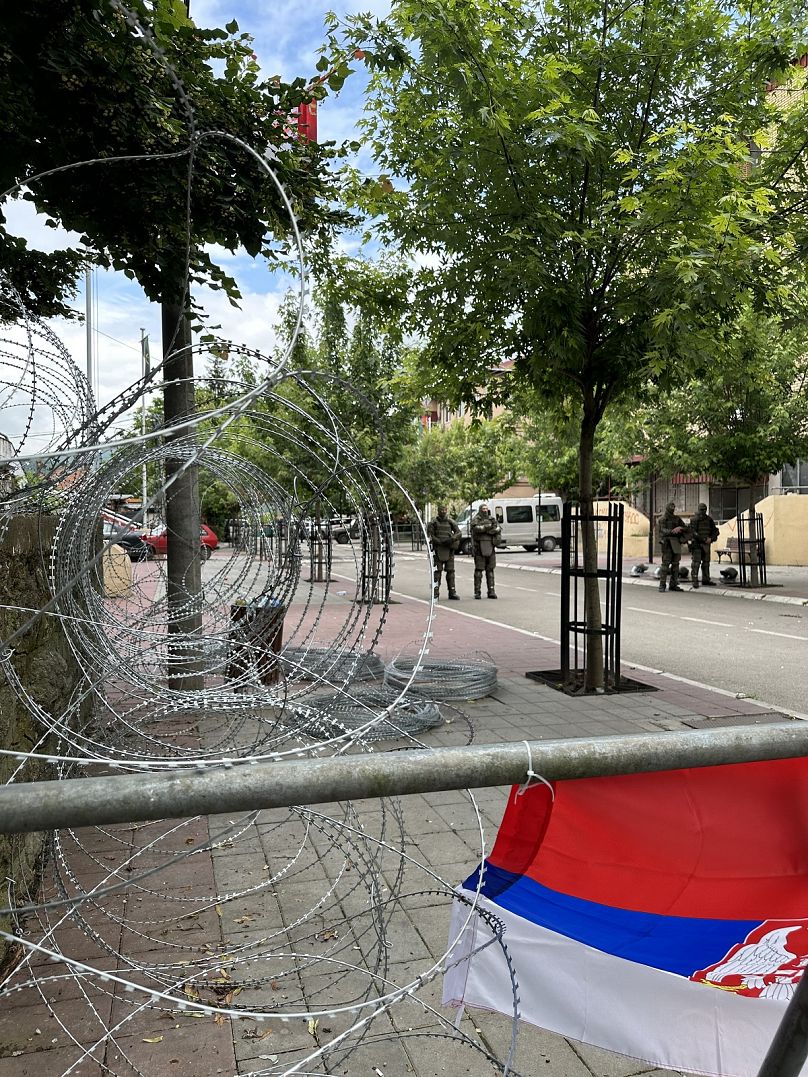Divisions between the Kosovan ethnic Serb minority and ethnic Albanians resurface bringing violent clashes with Nato forces. Is a full-fledged conflict a possibility? What led to this and what are the consequences? Monica Pinna went to Northern Kosovo to find out.
The bridge over the Ibar River in the city of Mitrovica is the most striking symbol of the divisions between ethnic Serbs and ethnic Albanians in Kosovo. North of the bridge, people speak Serbian, and the currency is Serbian dinars. In the South, residents speak Albanian and use euros.
The divisions between the two communities got worse after the April 23rd 2023 extraordinary municipal elections. Four ethnic Albanian mayors were appointed to the Northern majority-Serb areas after Serbs boycotted the polls.
Tensions came to a head in May, when Kosovo’s Albanian central government decided to install the elected mayors by force. In the town of Zvecan, Serb protesters tried to block officials from entering municipal buildings. The clashes with KFOR NATO-led peacekeeping troops left forty soldiers and over fifty Serb protesters injured.

This led to fears of a fresh flare-up in the conflict for Kosovan independence that was ended by NATO in 1999. Kosovo – which was an autonomous province of Serbia in the former Yugoslavia – declared its independence in 2008. The new country is recognized by over one hundred countries, but not Serbia. Serbia has made it clear that it will never give up on Kosovo.
Agreements not implemented
The Serb activist Milica Andric Rakic thinks relations between Serb and Albanian communities in Kosovo are at their worst in the past decade. I asked her why it has come to this.
“A part of it is the unwillingness of Kosovo and Serbia to engage constructively in dialogue and implement agreements as they were foreseen for the Serbian community. One of the most important ones is the Association of Serb Municipalities, reached ten years ago and never implemented.”
The Community of Serb Municipalities would ensure a level of self-management for Kosovo ethnic Serbs. It was a result of the 2013 Brussels agreement, but Serbia and Kosovo still don’t agree on how to apply it. This is one of the main sticking points that is stopping the process to normalize relations between the two countries.
Experts agree there are currently no elements that could lead to full-fledged conflict in Kosovo. Nevertheless, the situation remains unstable with implications also beyond the region. The EU is urging Kosovo and Serbia to find a solution. With the war in Ukraine, Western Balkans are seen as the new frontline of confrontation between Moscow and the EU. The current stalemate is slowing down the normalization process and the long path to EU membership, that both Kosovo and Serbia are seeking.
Source: Euronews
















